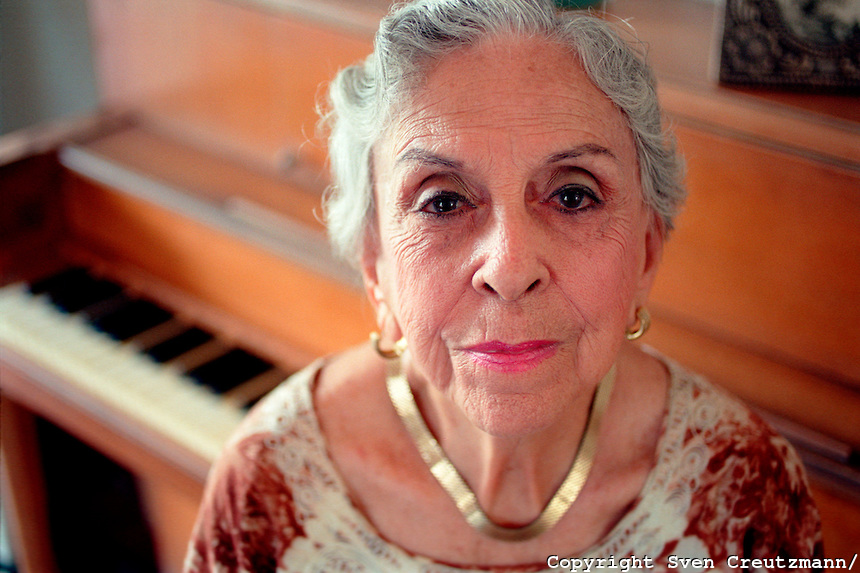Esther Borja is one of the great voices of the Cuban lyrical song. Ernesto Lecuona was right in considering her his best female interpreter. Esther brought to her voice , in her own range and grace, most of the songbook conceived by that giant of Cuban music. Pieces by other composers such as Gonzalo Roig, Rodrigo Prats and Eduardo Saborit were brilliantly added to her repertoire.Defined by many as the “twentieth century Cuban female voice” and “damsel of the Cuban song“, her pleasant soprano voice reached the most surprising vocal registers. Listening to her sing was like a caress for the ears of all those who had that privilege.
She came into the world in Havana on December 5, 1913 and her vocation towards singing developed early, something she inherited from her mother. Her interest in music grew due to her family’s friendship with Antonio María Romeu, Rosendo Ruíz and Sindo Garay. Esther Borja’s debut took place in 1928 on Radio, when she performed fragments of operas and zarzuelas.
In the early 1930s, she appeared as an amateur in a radio contest. Her first public performance was in Santiago de Las Vegas, where she sang “Noche azul” and “Canto Siboney”, both songs by Ernesto Lecuona
Esther’s professional debut took place in 1930, and she did so accompanied on piano by Ernesto Lecuona at the Gran Teatro Nacional and at what is now the Teatro Auditórium Amadeo Roldán. Her theater premier was with the zarzuela “Lola Cruz”, in which she sang “Damisela Encantadora”.

Her radio career was intense with tours as of 1936, with one through Latin American countries to end the following year when she was to take part in the shooting of the film “Adiós Buenos Aires” together with Ernesto Lecuona and Bola de Nieve.
The creation of Television provided the opportunity to see and hear her sing, in addition to being able to enjoy her refined personality and her communication skills, as was evidenced during the sixties in the space “Álbum de Cuba“.
Esther was always active and tireless. Her links with Radio Cubana went beyond personal presentations or the reproduction of her records. On many occasions – even at an advanced age -, she was part of the jury of National Radio Festivals, events to which she contributed with ideas and advice, as well as with her always welcomed presence.
December has a double meaning in relation to this outstanding artist who counts among the best Cuban artists of all times. Born on December 5 and on the 28th of the same month she departed for eternity, she would have just turned 100 years old.
Today, she is evoked with the well-deserved respect and affection for her fruitful existence. Esther Borja bequeathed us the memory of a time that does not elapse because she sang for her and for all times to come. She left us with the joy of feeling her close and part of Radio Cubana , which she loved so much.
By Tomás Alfonso Cadalzo Ruiz
Traduction: Gilda Gil


